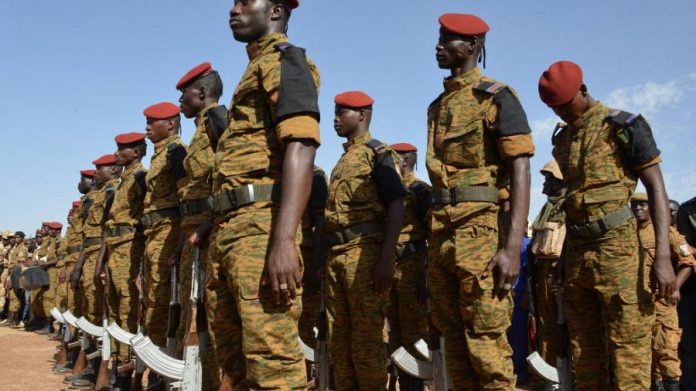Burkina Faso’s army has ordered civilians to evacuate two large “military interest zones” ahead of a series of planned operations against militants and the armed combatants operating across the West African nation.
The decision was taken at a defense council convened late on Monday.
“All human activities that risk exposure to the effects of the military operations which will be conducted shortly are prohibited,” said the commander of national operations, Lieutenant-colonel Yves-Didier Bamouni, on state TV.
“A period of time will be granted to the resident populations to reach more secure areas.”
One of the military zones is a rural area of about 2,000 square kilometers bordering Mali in the northern province of Soum. The other zone covers about 11,000 square kilometers on the southern border with Benin and is mostly national parkland.
Benoit Doamba, the head of Burkina Faso’s parks service, said several militant attacks had been reported in the parks. “This decision is not taken for nothing. Substantive work has been expected for some time in order to fully take control of the situation in the reserves and periphery.”
Burkina Faso has been battling armed combatants over the past few years.
The latest announcement comes days after 86 civilians were massacred in a militant attack in the northern border village of Seytenga. It was the second-worst attack since 2015 when violence attributed to militants linked to al-Qaeda and the Takfiri Daesh terrorist groups began.
READ ALSO: Meet the Kambari people: One of the few naked tribes of Nigeria
Burkina Faso’s army recently said they had killed at least 128 “terrorists” in several operations this month.
A group of military officers overthrew the democratic government in January with pledges to improve security, but militant attacks and raids have only multiplied.
Since 2015, violence has left thousands dead and around two million displaced. The attacks first started in the north near the Mali border but have since spread to other regions.
Takfiri and inter-communal violence were to blame for thousands of deaths in recent years across Burkina Faso, Mali, and Niger.













